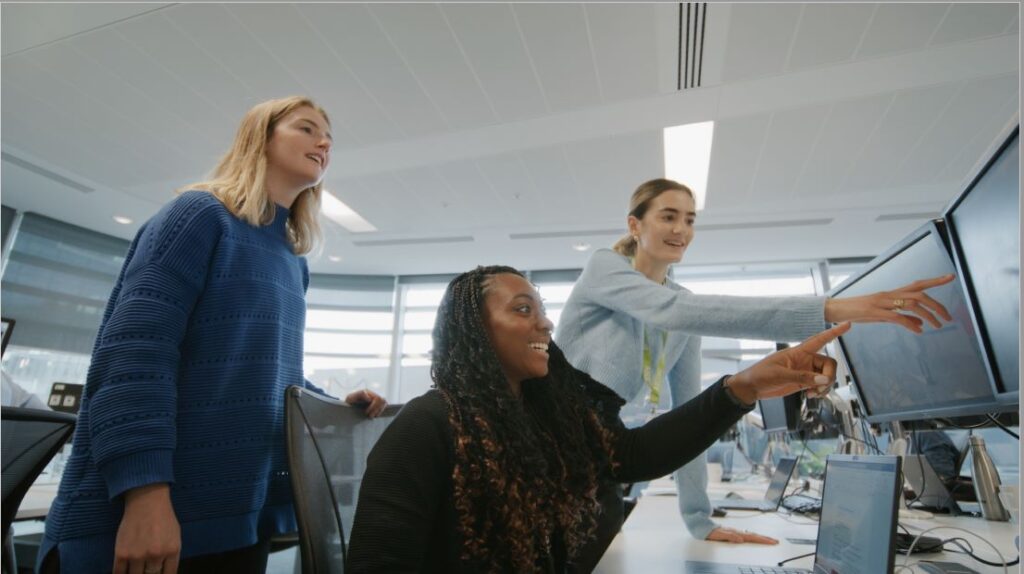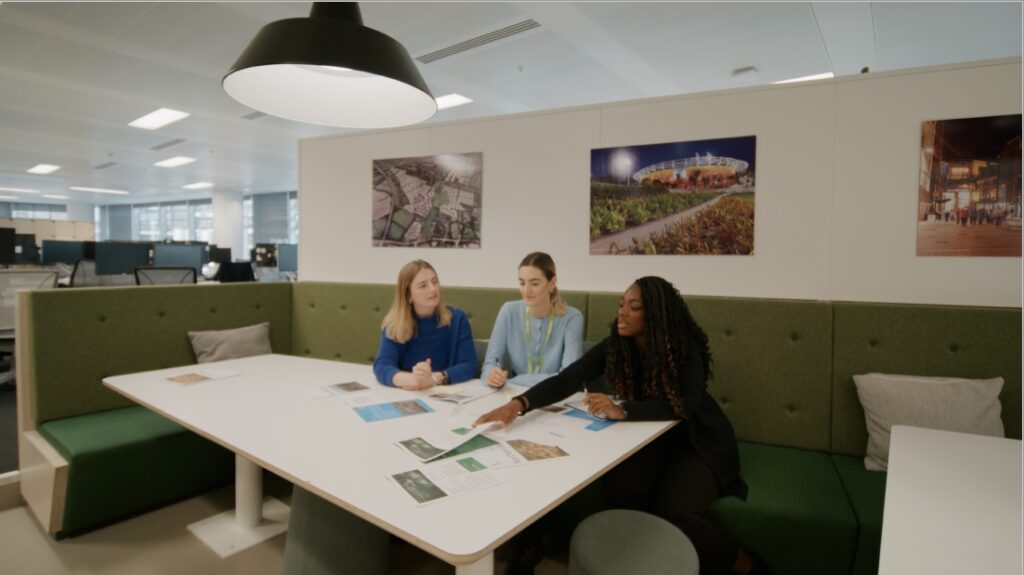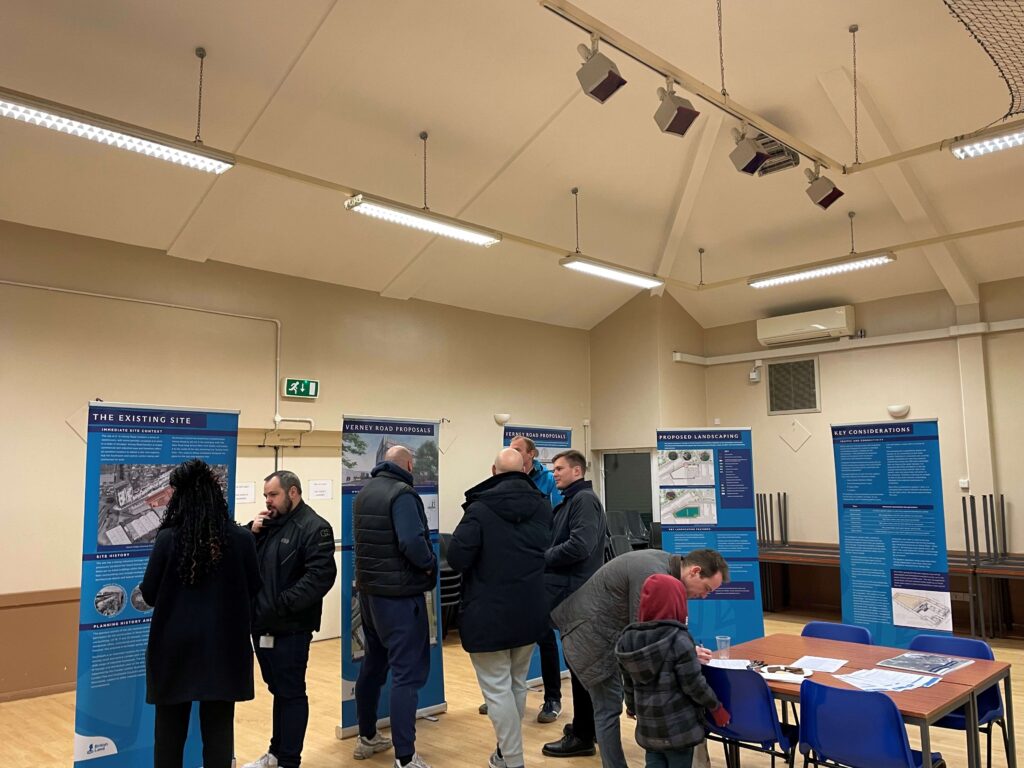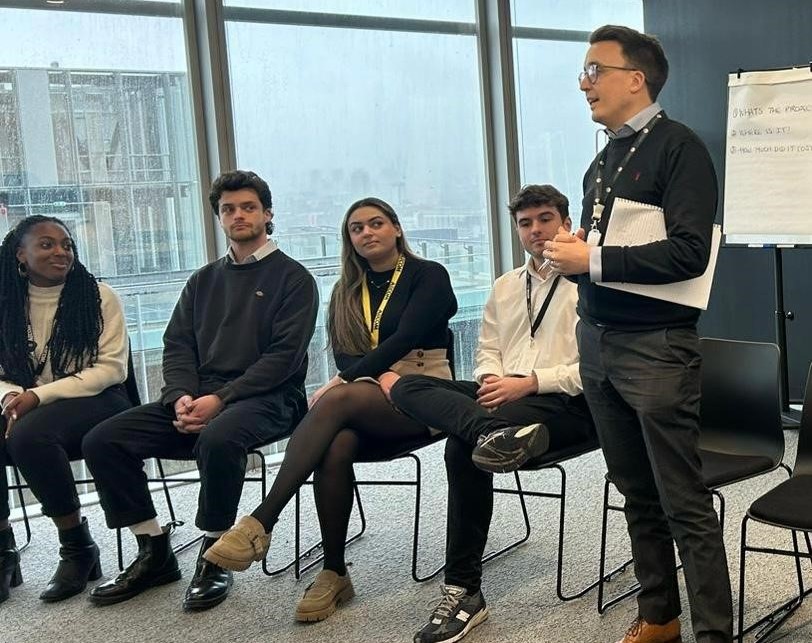People Spotlight: Meet Gabrielle Appiah
Our People Spotlight series gives you an inside look at our technical experts around the world. This week, we are highlighting a stakeholder engagement expert from our Environment, Water and Energy business in the United Kingdom and providing an insight into their inspiration and work.
Gabrielle Appiah is a senior stakeholder engagement consultant in our Stakeholder Engagement, Consultation and Communications team. She has five years’ experience in bidding, curating, managing and delivering robust and inclusive pre- and post-planning application consultation and engagement with diverse communities.
Tell us about what inspired you to join the industry.
From the age of 16, I was on the London Legacy Development Corporation’s (LLDC) Legacy Youth Panel for the Olympic Park and was elected as a member of the Legacy Youth Board, where I worked with my peers to constructively review development plans and designs for the Queen Elizabeth Olympic Park.
My time on the Youth Board sparked my passion for urban planning and facilitating the same level of community engagement I was engaged in. This strongly influenced my decision to pursue undergraduate and master’s degrees in planning and encouraged me to continue to progress in all my professional roles and voluntary experiences.
I was attracted to this role at AECOM because of the opportunity to deliver nationally significant work, a growing and talented stakeholder engagement services team, innovative digital tools for research and engagement, and the flexibility from our Freedom to Grow framework. In 2021, I was appointed by the Mayor of London to the London Legacy Development Corporation Board to help monitor its performance in relation to inclusive development. Freedom to Grow at AECOM enables me to offer my time to this role.
I was attracted to this role at AECOM because of the opportunity to deliver nationally significant work, a growing and talented stakeholder engagement services team, innovative digital tools for research and engagement, and the flexibility from our Freedom to Grow framework.”
What is your favorite AECOM project that you’ve worked on and why?
In just over two years at AECOM, I have worked with a range of teams on a variety of projects and sectors across the UK, such as Cambridge and Oxford’s East West Rail, Humber Zero — a carbon capture technology project, and Meridian Water, one of London’s largest urban regeneration projects. I have particularly enjoyed working on the Meridian Water project, offering strategic advice to the client as part of the delivery of the Strategic Infrastructure Works (SIW) and overseeing stakeholder engagement activities delivered by the lead contractor.
Along with my team, I added value by bringing ideas and approaches that consistently and efficiently manage stakeholder relationships. We facilitated an interactive stakeholder mapping session with key client and project team members to create a stakeholder audit. I consolidated the stakeholder database and developed handling plans, creating a streamlined process for stakeholder management across organisations. I have also produced a content plan advising on proactive communications with stakeholders — positive progress and news, awards and milestones.
The ability to work on projects in different sectors across the country — including rail, energy and urban regeneration — and with different teams and communities on a day-to-day basis is what I enjoy the most.
I have particularly enjoyed working on the Meridian Water project offering strategic advice to the client as part of the delivery of the Strategic Infrastructure Works (SIW) and overseeing stakeholder engagement activities delivered by the lead contractor. Along with my team, I have added value by bringing ideas and approaches that consistently and efficiently manage stakeholder relationships.”
Tell us a story of how your work positively impacted the community.
I believe that the day-to-day work my team delivers positively impacts communities. It’s important (and a democratic right) for local people and key stakeholders to be involved in shaping the places where they live, work and play and it’s critical to creating better places.
Using urban logistics hubs projects in London as an example, I provide strategic advice to the client to deliver best practise stakeholder engagement, which occurs in phases aligned with the design development stage so that all stakeholder feedback is meaningfully considered. The initial phase involves comprehensive stakeholder mapping to identify who should be engaged and one-to-one meetings with key representative stakeholders to feed into the initial proposals. In the second phase, I develop accessible project information to be shared at public events we facilitate with the client and the team which helps build a collaborative and constructive relationship between developers and the public. Following the engagement period, I analyse and summarise the feedback to inform the design development.
The subsequent Statement of Community Involvement report demonstrates how the feedback has been collected and shaped the plans at every stage, which contributes to a robust planning application. The Mandela Way urban logistics hub proposal has since been granted planning permission by the planning committee because of supporting speeches from local stakeholders and councillors as part of the relationships built during the engagement process.
Stakeholder engagement and consultation is a central part of delivering positive impacts on projects and I’m glad to be part of a team delivering that across a variety of sectors including transport, energy, water and waste, as well as residential and commercial property development.
Using urban logistics hubs projects in London as an example, I provide strategic advice to the client to deliver best practise stakeholder engagement, which occurs in phases aligned with the design development stage so that all stakeholder feedback is meaningfully considered. Stakeholder engagement and consultation is a central part of delivering positive impacts on projects and I’m glad to be part of a team delivering that across a variety of sectors.”
Share a piece of career advice.
In my career journey, I have largely benefitted from having a mentor and actively attending industry events, so I advise others to do the same.
I asked an industry network founder, who I look up to, to be my mentor and was fortunate to have her commit time to meeting with me and supporting my growth in the industry. She encouraged me to believe in my own ability for annual review processes and job opportunities and offered insights from her experience.
I decided to become a committee member and now chair for Women in Planning London because networks such as these offer great career development tools, opportunities to engage with peers and senior staff from across the industry, as well as topical content.
Therefore, my advice would be for anyone at any level to seek a mentor and attend industry events to build your network and knowledge.










